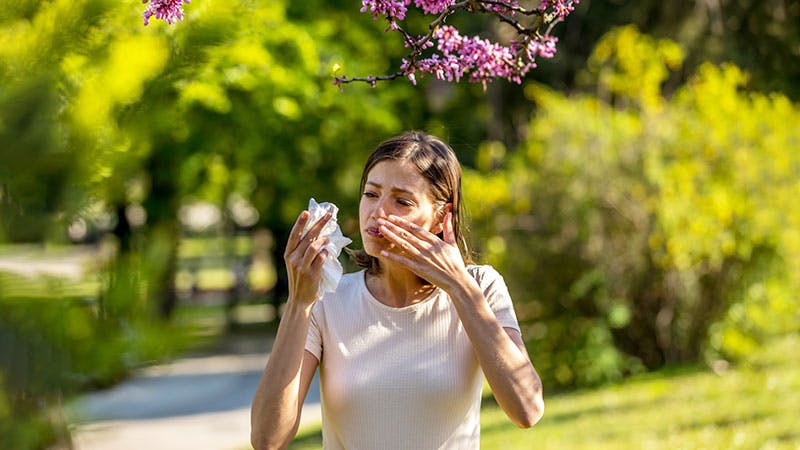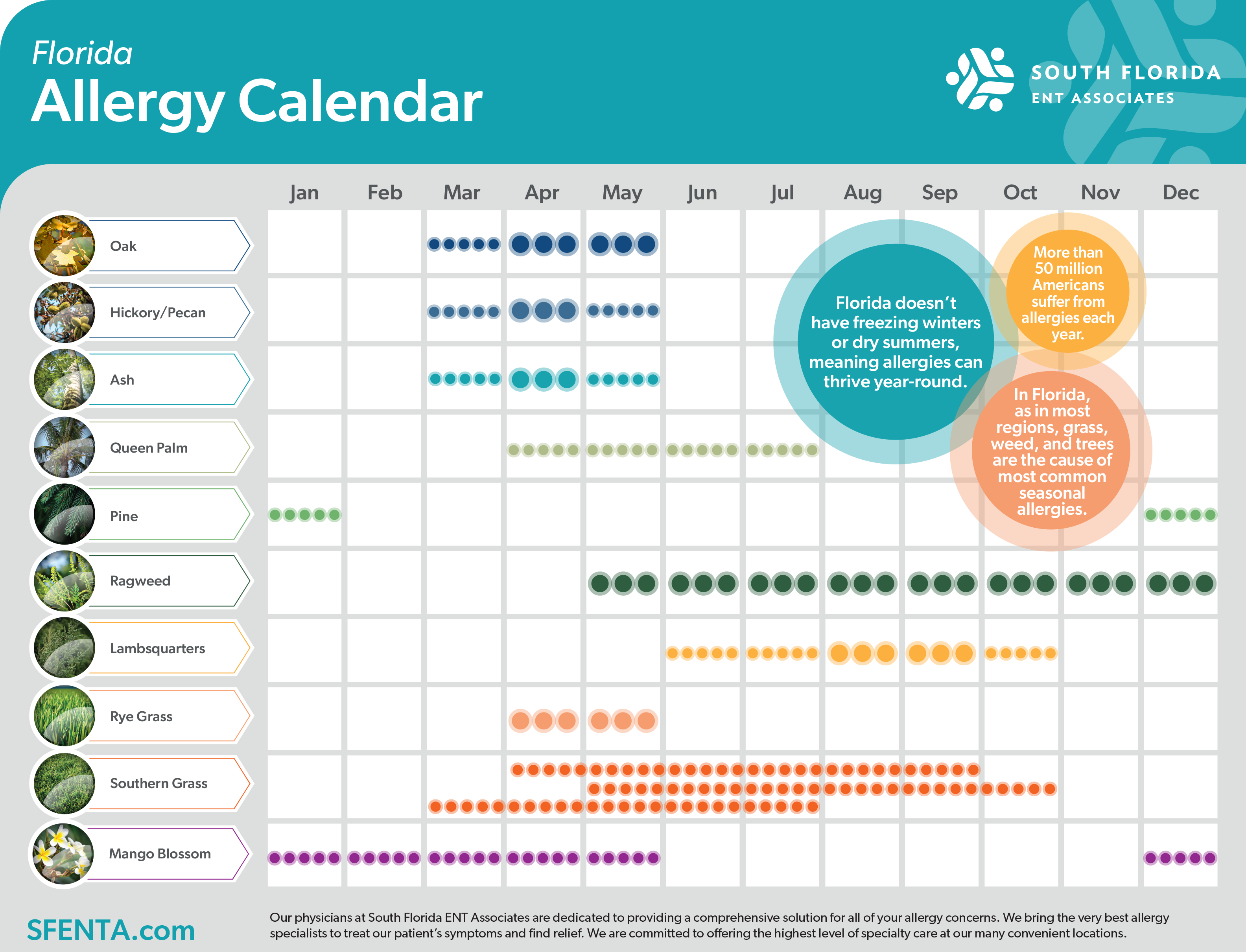
If you live in Florida, you're probably all too familiar with the dreaded allergy season. And while there are many different allergens that can trigger a reaction, some of the most common ones in the Sunshine State include oak, hickory/pecan, ash, queen palm, pine, ragweed, lambsquarters, rye grass, mango blossom, and southern grass. Dive in for a closer look at each of these allergens, what symptoms of an allergic reaction may look like, and why it's important to seek treatment at South Florida ENT Associates.

Download your allergy calendar here!
Oak: Oak trees are plentiful in Florida, and their pollen can be a major allergen for some people. Symptoms of an oak allergy can include sneezing, congestion, and itchy eyes.
Hickory/Pecan: Hickory and pecan trees are also common in Florida, particularly in the northern and central parts of the state. Like oak, their pollen can cause allergy symptoms.
Ash: Ash trees are found throughout Florida, and their pollen can trigger allergic reactions in some people. Symptoms of an ash allergy can include itchy eyes, sneezing, and a runny nose.
Queen Palm: Queen palms are a popular ornamental tree in Florida, but their pollen can cause allergy symptoms in some people. These symptoms may include itchy eyes, congestion, and sneezing.
Pine: Pine trees are abundant in Florida, particularly in the northern part of the state. Their pollen can be a major allergen for some people, causing symptoms such as congestion, itchy eyes, and sneezing.
Ragweed: Ragweed is a common weed found throughout the United States, including in Florida. Its pollen is a well-known allergen and can cause symptoms such as sneezing, congestion, and itchy eyes.
Lambsquarters: Lambsquarters is a weed that is particularly common in urban areas. Its pollen can cause allergic reactions in some people, with symptoms including sneezing, congestion, and itchy eyes.
Rye Grass: Rye grass is a common grass species found in Florida, particularly in the winter months. Its pollen can cause allergy symptoms such as sneezing, congestion, and itchy eyes.
Southern Grass: Southern grasses are a group of grass species that are particularly common in the southeastern United States, including Florida. Their pollen can cause allergic reactions in some people, with symptoms like those caused by other grasses.
Mango Blossom: Mango trees are abundant in Florida, and while they are famous for their delicious fruit, some individuals may be allergic to their blossoms. Mango blossom allergy symptoms can include sneezing, coughing, itchy throat, and nasal congestion.
If you're experiencing any of these allergy symptoms, it's important to seek treatment from a qualified medical professional. South Florida ENT Associates is a group of highly trained ear, nose, and throat specialists who can help you manage your allergy symptoms. We offer a wide range of treatment options, including allergy testing, immunotherapy, and medication management.
Allergy testing can help identify the specific allergens that are causing your symptoms, allowing for targeted treatment. Immunotherapy, also known as allergy shots, can help reduce your sensitivity to allergens over time, while medication management can help alleviate your symptoms and improve your quality of life.
In addition to these treatment options, at South Florida ENT Associates we also offer a variety of other services, including hearing tests, balance testing, and treatment for sleep apnea. Our team of experts provides personalized, compassionate care to each and every patient.
Don't let allergies keep you from enjoying all that Florida has to offer. Contact South Florida ENT Associates today to schedule an appointment and start breathing easier.

